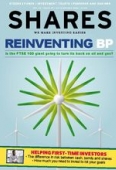Archived article
Please note that tax, investment, pension and ISA rules can change and the information and any views contained in this article may now be inaccurate.
What happens to pension assets if I get divorced?

I know this makes me a bit of a misery guts, but I’m getting married in a year and started thinking about what happens to my assets – and particularly my pension – if we get divorced. Clearly this isn’t my plan or hope, but equally I want to be prepared just in case.
Ben
Tom Selby, AJ Bell Senior Analyst says:
There are somewhere in the region of 100,000 divorces every year in the UK, with roughly four in 10 first marriages failing to last the distance. So while it might seem fairly miserable, it makes sense for all married savers to understand how divorce could affect their retirement plans.
When a couple get divorced, their pensions may be included in the division of assets and/or income that takes place. There are three options available:
1. Offsetting
Under offsetting, the value of the pension is (predictably) ‘offset’ against the other assets in the marriage. So if you hold a valuable pension and your ex-spouse does not, on divorce your ex-spouse might be granted a greater share of the other assets to ‘offset’ the value of the pension you hold.
If you are offsetting a defined benefit (DB) pension – i.e. a pension that pays a guaranteed income based on your salary and the number of years you have worked for your employer – a ‘cash equivalent transfer value’ will be used to establish the value of the benefits you have built up. You should be able to request this from your pension scheme.
If you have a defined contribution (DC) pension like a SIPP, you simply use the value of the assets held in your fund.
2. Earmarking
An ex-spouse can ‘earmark’ benefits in a pension, allowing them to access the income and/or lump sum benefits at some point in the future. This could be when the member retires or when they die.
Where a DB pension is earmarked, the ex-spouse will be awarded a percentage of the member’s pension at the scheme’s normal pension age – this is simply when they become entitled to income from the scheme.
For DC pensions, the ex-spouse will receive a set percentage of the member’s own pension rights and/or tax-free cash. In such circumstances care needs to be taken to ensure the award only relates to funds accumulated up to divorce and the related growth, not the value resulting from subsequent payments into the pension.
Under earmarking, the pension remains ‘owned’ by the member and the ex-spouse has no control over when they receive their money. This allows the member to delay taking an income from their pension, potentially depriving the ex-spouse of an expected income. For this reason, earmarking isn’t a popular option.
It’s also worth noting that where the member or the ex-spouse die, the payment of any benefits in relation to it will end. This is also the case if the ex-spouse remarries (but not the member).
3. Pension sharing
Pension sharing splits the scheme member’s pension rights at the time of divorce. For DC this will be expressed as a percentage of the fund, while for DB it is in terms of the benefits to be received.
Because pension sharing achieves a clean break, the death or marriage of either party has no impact – instead each person has a legal right to their portion of the income and/or tax-free cash from the pension. This clean break also makes it the most popular choice for dealing with pensions on divorce.
As you can imagine, this is a complex area and I’ve only been able to touch briefly on the options available. So make sure you read around further and, if you are going through a divorce involving a significant pension, speak to a lawyer, an FCA qualified financial adviser, and your pension provider to confirm options before making any decisions.
DO YOU HAVE A QUESTION ON RETIREMENT ISSUES?
Send an email to editorial@sharesmagazine.co.uk with the words ‘Retirement question’ in the subject line. We’ll do our best to respond in a future edition of Shares.
Please note, we only provide guidance and we do not provide financial advice. If you’re unsure please consult a suitably qualified financial adviser. We cannot comment on individual investment portfolios.
Important information:
These articles are provided by Shares magazine which is published by AJ Bell Media, a part of AJ Bell. Shares is not written by AJ Bell.
Shares is provided for your general information and use and is not a personal recommendation to invest. It is not intended to be relied upon by you in making or not making any investment decisions. The investments referred to in these articles will not be suitable for all investors. If in doubt please seek appropriate independent financial advice.
Investors acting on the information in these articles do so at their own risk and AJ Bell Media and its staff do not accept liability for losses suffered by investors as a result of their investment decisions.

 magazine
magazine









